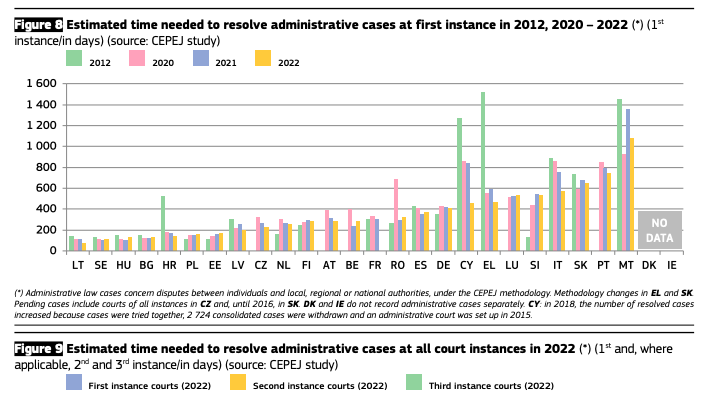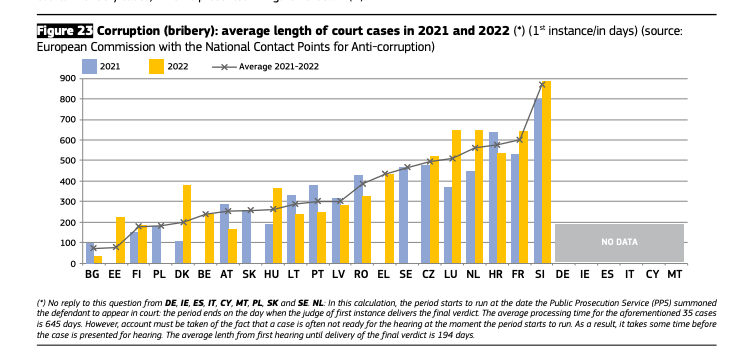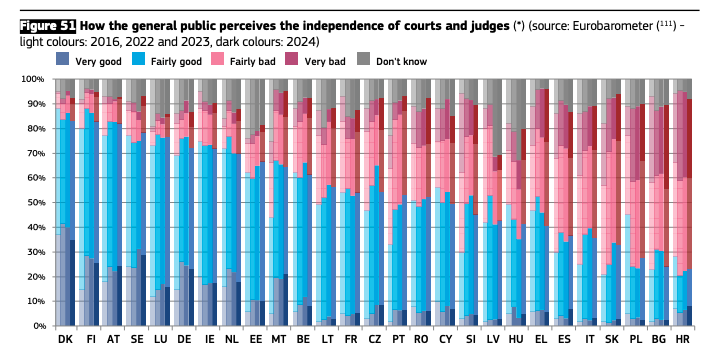Malta continues to have some of the longest delays in the EU in resolving civil, commercial and administrative cases, and there is still no data on the average length of time taken to resolve corruption and bribery cases.
According to the European Commission’s EU Justice Scoreboard published on Tuesday, of the 25 countries surveyed in 2022, Malta’s estimated time to resolve administrative cases at first instance was around 2.8 years, followed by Portugal, where administrative cases took 1.7 years to complete.
In 2022, Maltese courts took an average of one year and nine months to resolve money laundering cases. This is slightly longer than the average of one and a half years in 2021 and the fourth longest in the EU.
Although the figures show an improvement in prosecuting money laundering cases in 2022, reports submitted at this time occurred when Malta was greylisted, and the government made every effort to create the impression it was serious about tackling money laundering.
Legal experts consulted by The Shift earlier this month said that, to date, Malta has not had a single successful case of prosecuting money laundering.

“Money laundering is very difficult to prosecute. And we have no experience. We don’t have a single successful case of prosecuting money laundering,” an academic and expert in money laundering told The Shift earlier this month.
He said cases were brought against individuals to impress the FATF, especially when Malta was greylisted between 2021 and 2022, to give the impression that the country was acting on money laundering.
The Commission’s report also noted that Malta did not provide data on the average length of corruption and bribery cases for 2021 and 2022.

A Eurobarometer survey of the general public shows that since 2016, public perceptions of judicial independence have improved or remained stable in 19 member states.
Malta ranks tenth out of the 27 countries surveyed in terms of the public’s positive perception of the independence of courts and judges.

The EU Justice Scoreboard is an integral part of the EU’s rule of law toolbox and one of the sources of information for the Rule of Law Report since it provides comparative data on the functioning of national justice systems.
The annual Rule of Law Report instead presents a qualitative assessment of significant developments related to the rule of law in all 27 Member States.
The Scoreboard does not promote any particular type of justice system. Whatever the model of the national justice system – or the legal tradition in which it is anchored – timeliness, independence, affordability and user-friendly access are some of the essential features of an effective justice system.
The full report and accompanying data can be accessed here.












